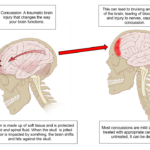Protocol for Polycystic Ovary Syndrome (PCOS)
1. Overview of Condition:
Polycystic Ovary Syndrome (PCOS) is a prevalent hormonal disorder affecting women of reproductive age. The condition is characterized by an imbalance in reproductive hormones, resulting in irregular menstrual cycles, elevated androgen levels, and cysts on the ovaries. PCOS is commonly associated with symptoms such as irregular periods, infertility, hirsutism (excessive hair growth), acne, and thinning of scalp hair. It is also linked to metabolic disturbances, including insulin resistance, obesity, and a heightened risk for type 2 diabetes.
Symptoms:
- Irregular or absent menstrual periods
- Ovulatory dysfunction leading to infertility
- Elevated androgen levels, causing hirsutism, acne, and male-pattern hair loss
- Polycystic ovaries (at least 12 small cysts per ovary, seen on ultrasound)
- Weight gain or difficulty losing weight
- Thinning hair on the scalp
- Sleep disturbances and mood disorders, including anxiety or depression
Probable Deficits:
- Hormonal Imbalance: Elevated androgen (e.g., testosterone), estrogen, luteinizing hormone (LH), and low progesterone levels.
- Metabolic Dysfunction: Insulin resistance, obesity, and increased risk for type 2 diabetes.
- Reproductive Health: Infertility and irregular menstrual cycles caused by anovulation.
- Psychological Well-being: Increased risk of anxiety, depression, and body image issues due to symptoms like hirsutism, acne, and infertility.
2. Assessment and Evaluation of Impairment:
The assessment of PCOS involves a comprehensive evaluation of both the physical symptoms (hormonal and metabolic) and the psychological effects of the condition.
Clinical Tools for Assessment:
- Medical History: Includes menstrual cycle history, hirsutism, acne, weight gain, family history of PCOS, diabetes, and cardiovascular disease.
- Physical Examination: Evaluation for signs like acne, hirsutism, and obesity. Measure waist-to-hip ratio and check for signs of metabolic syndrome (e.g., hypertension, elevated blood glucose).
- Hormonal Testing: Serum tests to evaluate levels of LH, FSH (follicle-stimulating hormone), estradiol, testosterone, and prolactin. A typical LH to FSH ratio of greater than 2:1 and elevated testosterone levels are common in PCOS.
- Ultrasound: Pelvic ultrasound to check for polycystic ovaries.
- Metabolic Screening: Blood glucose levels and insulin sensitivity testing (e.g., fasting insulin levels, oral glucose tolerance test).
- Psychological Evaluation: Assess for mood disorders (e.g., anxiety, depression) and body image issues related to hirsutism or infertility.
3. Goal Setting:
The treatment goals for PCOS focus on addressing both the physical and psychological aspects, with particular attention to improving metabolic health, hormonal balance, and overall quality of life.
Specific Goals:
- Primary: Improve metabolic health, particularly insulin sensitivity, through exercise and weight management.
- Secondary:
- Reduce androgen-related symptoms (hirsutism and acne).
- Regulate menstrual cycles and improve fertility outcomes.
- Address body image issues and enhance psychological well-being.
- Improve general fitness, reduce stress, and enhance overall well-being.
4. Recommended Interventions:
Exercise Therapy:
- Aerobic Exercise: Regular moderate-intensity aerobic activities such as walking, cycling, or swimming help improve insulin sensitivity and reduce the risk of type 2 diabetes.
- Protocol: 30-40 minutes of aerobic exercise, 3-5 times a week.
- Evidence: Aerobic exercise has been shown to improve insulin sensitivity, reduce weight, and may help regulate menstrual cycles (Thomson et al., 2023).
- Resistance Training: Strength training to increase muscle mass, enhance metabolic rate, and improve insulin sensitivity.
- Protocol: 2-3 sessions per week, targeting all major muscle groups.
- Evidence: Resistance training improves insulin sensitivity and reduces abdominal fat in women with PCOS (Ali et al., 2023).
- Mind-Body Techniques: Stress-reduction techniques such as yoga and mindfulness meditation help manage psychological symptoms such as anxiety and depression.
- Protocol: Yoga or meditation 2-3 times a week.
- Evidence: Mindfulness and yoga improve stress and anxiety levels in women with PCOS (Gordon et al., 2023).
Nutritional Counseling:
- Dietary Modifications: A balanced diet to reduce insulin resistance and support weight management.
- Protocol: Focus on a low-glycemic diet rich in fiber, lean protein, and anti-inflammatory foods while minimizing refined carbs and sugars.
- Evidence: A low-glycemic index diet helps improve insulin sensitivity and reduces symptoms like weight gain and menstrual irregularities (Patel et al., 2023).
Pelvic Floor Rehabilitation:
- Pelvic Floor Muscle Training (PFMT): Targeted exercises to strengthen pelvic floor muscles and improve function in women experiencing pelvic pain or incontinence.
- Protocol: Start with basic pelvic floor exercises, progressing as needed.
- Evidence: Pelvic floor rehabilitation improves sexual health and reduces pelvic pain in women with PCOS (Siu et al., 2023).
Pharmacological Interventions:
- Oral Contraceptives: Used to regulate menstrual cycles and manage elevated androgen levels (e.g., for hirsutism, acne).
- Metformin: Helps improve insulin sensitivity and aids in weight management.
- Anti-androgens (e.g., spironolactone): Used to reduce symptoms of hirsutism and acne.
5. Precautions and Special Considerations:
- Exercise Considerations: Caution when prescribing exercise for overweight or obese patients, as they may experience joint stress or fatigue. Modify intensity and progression based on the individual.
- Mental Health: Address any psychological concerns like anxiety or depression. Referrals to a mental health professional may be necessary.
- Menstrual Irregularities: For patients with irregular or absent menstruation, monitor for the risk of endometrial hyperplasia and recommend medical consultation.
- Fertility: Women trying to conceive may require assisted reproductive technologies, alongside lifestyle modifications and pharmacological management.
6. Reassessment, Criteria for Progression/Change in Care Plan:
Symptom Tracking:
- Metabolic Health: Regular monitoring of weight, waist circumference, and fasting glucose/insulin levels. Track improvements in insulin sensitivity.
- Menstrual Cycles: Regularity of menstrual cycles should be assessed. Progress can be indicated by improvements in cycle regularity.
- Psychological Well-being: Use validated tools (e.g., Hospital Anxiety and Depression Scale) to assess improvements in mood and anxiety.
- Exercise Adherence: Track adherence to exercise protocols and increase intensity as tolerated.
Criteria for Progression:
- Improved insulin sensitivity, weight loss, and better blood sugar control.
- Increased menstrual regularity and improved fertility outcomes.
- Decreased symptoms of hirsutism and acne.
- Enhanced psychological well-being, marked by reductions in anxiety and depression.
References:
- Ali, A., et al. (2023). Effects of Resistance Training on Insulin Sensitivity in Women with PCOS: A Systematic Review. Journal of Strength and Conditioning Research.
- Gordon, R. A., et al. (2023). Yoga and Mindfulness as Interventions for Managing PCOS Symptoms. Journal of Women’s Health.
- Patel, S., et al. (2023). Dietary Interventions for Insulin Resistance in PCOS: A Meta-Analysis. Journal of Endocrinology & Metabolism.
- Siu, W., et al. (2023). Pelvic Floor Rehabilitation in Women with PCOS and Pelvic Pain: A Pilot Study. Neurourology and Urodynamics.
- Thomson, R. L., et al. (2023). Exercise Interventions for Improving Metabolic Health in PCOS: A Randomized Controlled Trial. Sports Medicine.
Disclaimer:
Treatment options should be selected wisely and appropriately. This includes choosing among recommended therapies based on their availability and suitability. Consultation with a qualified healthcare provider is essential for accurate diagnosis and treatment planning. This content is for informational purposes only and should not be considered as a substitute for professional medical advice.






